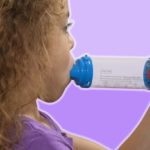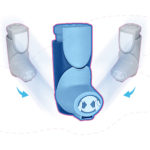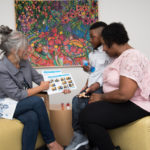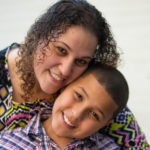Trial for severe asthma targets a mutation common in children of color
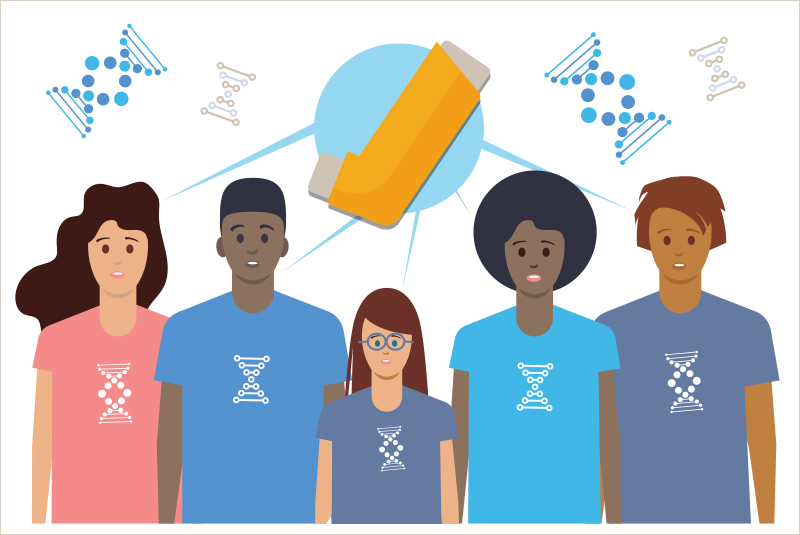
Children and adults of color have higher rates of asthma than white people, as well as more hospitalizations and deaths. There are many reasons for this disparity, including more exposure to allergens and pollutants and differences in asthma care. One difference, however, is genetic. A mutation that causes severe, hard-to-treat asthma, in the gene ILR4, is especially common in Black and Latinx populations.
More about the trial
IDEA trial participants will be randomly assigned to either dupilumab or placebo, given as an injection under the skin, every two weeks for 48 weeks. The researchers will track asthma flare-ups, lung function, and T-cell responses throughout. For more information, email asthma@childrens.harvard.edu, call 857-218-5336, or visit ideaasthma.org.
Under a $10 million grant from the National Institute of Allergy and Infectious Diseases, Boston Children’s Hospital has launched a randomized, placebo-controlled clinical trial to test a custom treatment, dupilumab, for severe asthma. It follows a half-decade of research at the hospital showing how the mutation worsens asthma — and the potential for dupilumab, an existing drug, to block its effects.
“There are a lot of disparities in asthma severity, so in this study we hope to help inner-city disadvantaged kids who this genotype disproportionately affects,” says study leader Dr. Wanda Phipatanakul, in the Division of Immunology at Boston Children’s. “The treatment we are testing should especially benefit these children, as well as adults.”
Can dupilumab calm inflammation in asthma?
Called IDEA (Investigating Dupilumab’s Effect in Asthma by Genotype), the trial will test dupilumab (Dupixent®) in 150 people age 12 and older, with and without the ILR4 mutation. Participants will enroll at Boston Children’s, Brigham and Women’s Hospital, the Henry Ford Health System in Detroit, and the Atlantic Health System in New Jersey.
The trial is a natural outcome of earlier scientific work by Dr. Phipatanakul and Dr. Talal Chatila, also in the Division of Immunology. They showed that mutations in IL4R alter the cell receptor for the chemical messenger IL-4. This leads to increased airway inflammation via two types of T cells, Th2 and Th17. In fact, the mutation converts normally benign regulatory T cells, which help calm immune responses, into cells much like inflammatory Th17 cells.
Having two mutated copies of IL4R (one from each parent) further increases asthma severity. Severity is even worse, Dr. Phipatanakul has found, if children are also exposed to toxins in the air (as indicated by air samples from classrooms).
Dupilumab, a monoclonal antibody, blocks the mutated IL-4 receptor, and the researchers hope it will also curb asthma inflammation. The study will compare responses to the drug in people with one, two, or no copies of the IL4R mutation.
“We specifically want to help the patients who are most in need,” says Dr. Phipatanakul. “Based on our earlier work, we expect that people with two copies of the genetic variant will respond the most. We’re excited to take the science to the next logical step.”
Learn more about studies being conducted at the Asthma Clinical Research Center.
Related Posts :
-

Can asthma be nipped in the bud?
Worldwide, asthma affects an estimated 300 million people, and is expected to surpass 400 million by 2025, according to the World Health Organization. ...
-

SMART: A new approach to asthma management
Until recently, the typical approach to asthma involved two inhalers. In its first update since 2007, the National Asthma Education and ...
-

A lifeline for families with asthma
Nilda Gabin knows how terrifying it is to rush to the hospital with a child who is having trouble breathing — ...
-

The business case for addressing disparities in asthma
The Community Asthma Initiative (CAI) at Boston Children’s Hospital has been improving the health and quality of life of ...


